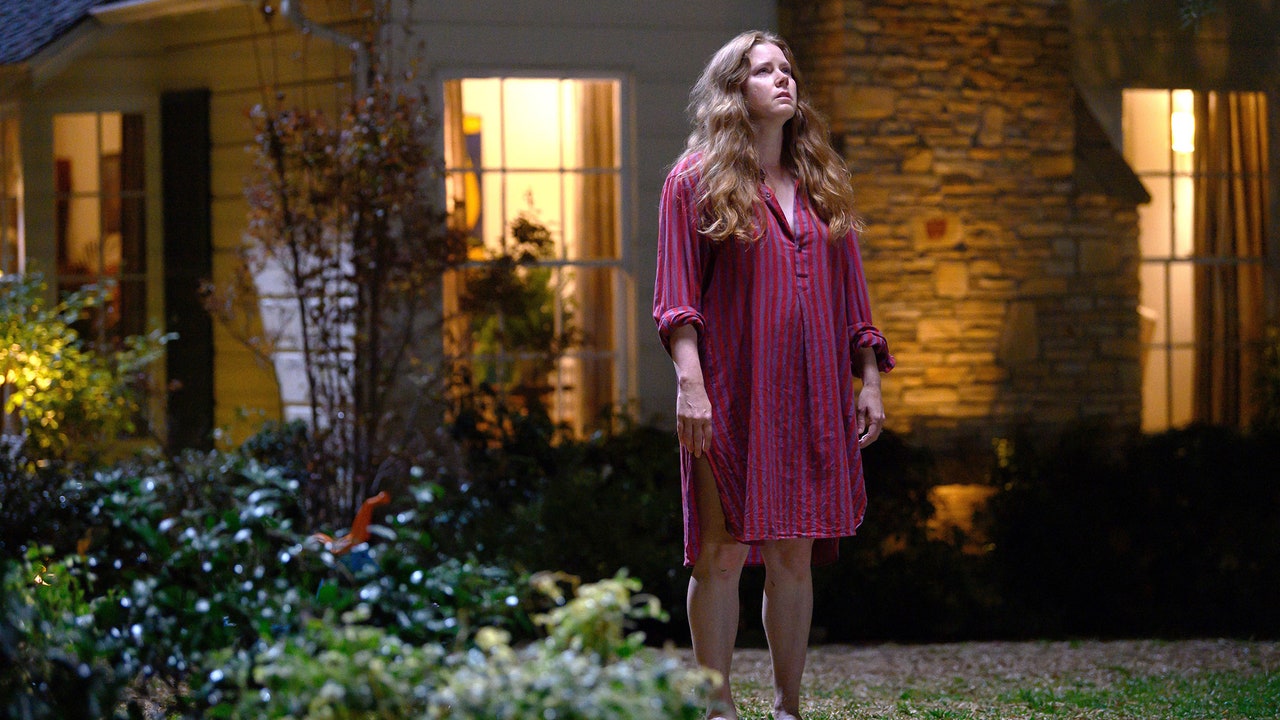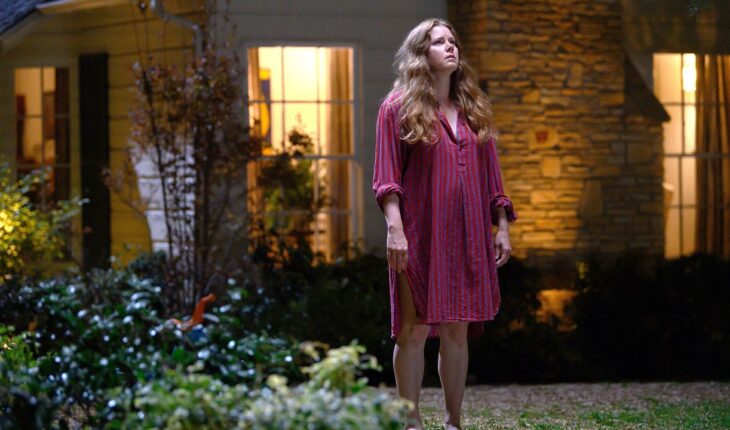
Throughout her career, Amy Adams has played a cheerful princess, a Catholic nun, a hard-nosed boxer’s girlfriend, Lois Lane, and a chatty pregnant girl. But she’s never done something quite as real and honest as her role in Nightbitch, Marielle Heller’s film about a mother who is convinced she’s turning into a dog.
The film, which is now in theaters, is based on Rachel Yoder’s novel—a meditation on the identity transformation of motherhood, which can lead to isolation and lots of complicated feelings. Adams stars as Mother (that’s the only name she’s given), who is feeling untethered after giving up her work as an artist to raise her young son and struggling to connect with other mothers. Her husband (Scoot McNairy) is often away on business trips, which leaves her alone with her thoughts. Soon she starts to notice that she’s feeling and acting more and more like a dog.
The film is a mix of magical realism and eerily relatable moments, many of which were plucked from Heller’s and Adams’s own experiences of motherhood. Adams, a six-time Oscar nominee who recently landed Golden Globe and Indie Spirit nominations for Nightbitch, spoke to Little Gold Men about adapting the novel, comparing herself to Mother, and her favorite past Oscars memory.
Vanity Fair: What was it about Rachel Yoder’s book that made you want to adapt it?
Amy Adams: It was just such a unique narrative—the perspective of being inside the mother’s mind, and this brutal honesty. I thought that if we could capture that, we could communicate something that would be really special. It had such a great sense of humor and it dealt with not only motherhood, but parenthood and relationships. There’s just so much to—I’m going to make puns—sink your teeth into.
It doesn’t seem like the easiest book to adapt, because of its unique narrative. What were you looking for when it came to finding the right writer and director?
We talked about finding a director that had a really beautiful visual storytelling technique, but also somebody who is unafraid to take risks with tone. Marielle was top of my list. I had loved her work in Diary of a Teenage Girl, and then again with Can You Ever Forgive Me? and Beautiful Day [in the Neighborhood].
Marielle has talked about how she put a lot of her own experiences as a new mom into the script. Did you do the same?
A lot of the stuff in the relationship was very relatable. What we realized when we were talking about it is that these experiences aren’t talked about a lot, but they’re very universal. I didn’t exactly act like Mother, but I always felt like everyone else was so much better at it than I was—when you go to the mommy and me classes, I always wanted to be able to get into it and always felt like, “I feel like I’m faking.” It was a lot of conflicting thoughts. So I did bring a lot of my personal experiences into the performance.
I had that feeling when she’s letting her kid paint all over the floor in that one scene. I thought, What a good mom. I was comparing myself to this fictional mother.





